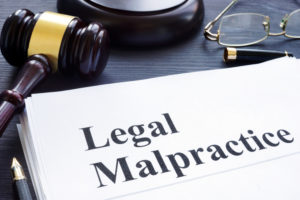Every 9 seconds, someone in the United States sustains a brain injury. More than 3.5 million children and adults sustain an acquired brain injury each year. One of every 60 people in the U.S. lives with a traumatic brain injury-related disability. Clearly, the stats show a large population is dealing with brain injuries. So, what is the best way to raise awareness and educate people? Encouraging brain-injury survivors to advocate for themselves is one way to help spread the word.
The Brain Injury Association of America (BIAA) intends to do just that by raising awareness with its 2020 campaign, #ChangeYourMind. The BIAA leads the nation in observing Brain Injury Awareness Month each March. The focus of this year’s campaign is on sharing experiences of the brain injury community to help destigmatize the injury, empower survivors, and promote a broader understanding of what it’s like to live with a brain injury. The BIAA believes that encouraging brain injury survivors to share their stories helps them to connect with other survivors and also educates the community.
How to Educate People About Your Brain Injury
The true advocates for brain injury are the survivors so it’s important to let them share their own stories first hand. In the article, Community Education: A Paradigm Shift, Janet M. Williams, MSW, Ph.D., discusses the importance of letting brain injury survivors adjust to life in their community by learning about their own injuries and deciding for themselves how to accommodate for their disability. While doctors, family members and brain injury professionals certainly should be there to assist, they shouldn’t be doing all of the work.
Williams says, “Making the paradigm shift – moving from the traditional view of families and professionals being in charge to truly support persons with brain injury as they take control of their own lives – is difficult but not impossible. It takes time, empathy, and patience. When we honor the idea that individuals with brain injury must be in charge of every decision and involved in every conversation, independent community living becomes sustainable.”
Shifting from medical professionals and others doing the work to becoming your own brain injury advocate and rejoining the community can be challenging, but some helpful tips for brain injury survivors to consider include:
- The best way to begin is to speak for yourself. Those living with brain injury need to be in charge of their lives. That means they must be involved in every conversation that relates to them.
- Never seek special treatment, but do ask for accommodations. Express your civil rights by asking for accommodations, whether that is having a ramp installed in your building, asking others to repeat what they are saying so you can write things down, or asking for extra time when completing a task.
- Remember we are all more alike than different. Look for common elements rather than differences when figuring out how you can be part of your community.
- Find ways to be connected to the community by expressing what you want to do and with whom you want to do it. Start joining groups, classes, or communities who share your common interests.
Finding Support Through Survivor Stories
Learning to adjust to everyday life after a brain injury isn’t quick or easy so having a good support network is important. All brain injury survivor’s stories are unique, but they do share common symptoms and struggles. By sharing these stories, brain injury survivors and caregivers of brain injury survivors create a support network that can educate and provide hope to one another. It’s a long journey and important for brain injury survivors and their family members to know that they aren’t alone.
Sarah Lefferts, a brain injury survivor, said that joining the BIAA Brain Injury Advisory Council changed her life. “The group of people I have met through the BIAA is empowering and supportive. BIAA taught me that I am not alone in brain injury and that every injury is different. It blew me away when I realized how many people suffer from concussions and other brain injury,” she explains. “I feel like my responsibility on the other side of this injury is to help other people understand that this injury is often invisible, but you are not – and it’s OK to always keep striving to heal.”
Survivors, like Sarah, sharing their stories is the goal of creating brain injury awareness. They are the true voices of brain injury and the best people to be telling their stories and leading the way through their recovery.
For more information about brain injuries, the BIAA or it’s 2020 campaign, visit https://www.biausa.org/. If you or a loved one has suffered a brain injury due to an accident, contact the personal injury attorneys at Murray & Murray Co., L.P.A. in Ohio today to discuss your legal options.

Partner at Murray & Murray Co., L.P.A.










Comments for this article are closed.